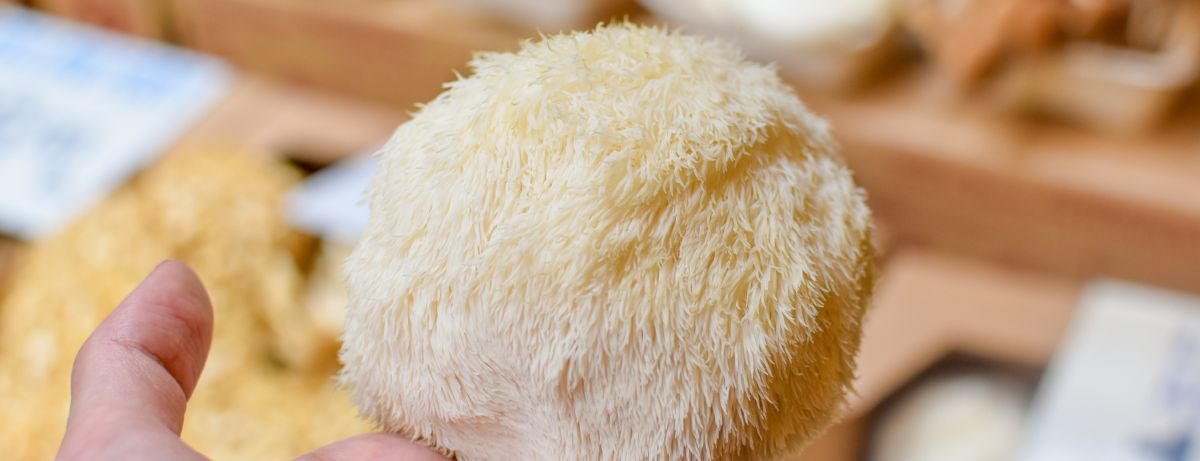15% off €35 OR 20% off €45
Foods with benefits: the unexpected ingredients of 2023

All food has its benefits, no matter how “healthy” or “unhealthy” it’s considered to be. The devil is in the detail.
But we like to get our value for money! More of us are searching for food that goes above and beyond nutrition, extending into our mood, metabolism, and more.
From adaptogenic mushrooms to plants you’d find in a pond, here’s a round-up of the most exciting “functional food” trends…
In this article:
- Functional mushrooms
- Duckweed
- Sea moss
- Superfood sprinkles
- The final say
1. Functional mushrooms
Get ready for the “shroom boom”: it’s not as daunting as it sounds.
Mushrooms are set to take the stage this year, partly because they’re packed with protein and a sustainable plant-based alternative to meat.
But we’ll also see fermentation technology at its best, with new start-ups developing meat-free protein that pose benefits to our gut health.
Alongside our usual closed cups will be “functional mushrooms”, which offer more appeal than simply being tasty. Take the fluffy-looking Lion’s Mane, thought to help the body better respond to stress:
A double-blind, parallel-group, placebo-controlled trial was performed on 50- to 80-year-old Japanese men and women diagnosed with mild cognitive impairment.
At weeks 8, 12, and 16 of the study, the Yamabushitake (Lion’s Mane) group showed significantly increased scores on the cognitive function scale compared with the placebo group.¹
As research grows, we’re seeing mushroom-derived supplements and even drinks hitting our shelves.
Why not consider starting your day with a Lion’s Mane coffee…?
2. Duckweed
Know the tiny leaves that form a “carpet” on ponds? They’re duckweed, and they’re one of the best sources of vitamin B12 around.
This vitamin is famously hard to get if you’re vegan, but “water lentils” as they’re known could be an unexpected solution.
Duckweed is also extremely protein-dense, potentially offering as much protein as chicken at an average of 20-35%.² ³
But we don’t recommend scooping it out of your pond just yet; its calcium oxalate content can be dangerously high and it must be grown in sanitary conditions for safe consumption.⁴
That said, it’s considered a promising new food due to its high protein and environmentally friendly production properties. Despite the “pond” associations we currently have with duckweed, participants in a Dutch study generally reacted well to it as an alternative to other green vegetables with a fitting meal.⁵
The study found “no major objections from consumers”…so who knows if it’ll be on the menu soon?
3. Sea moss
Sea moss has been on our radar for a while, and it’s clear the superfood algae isn’t going anywhere.
Rich in iodine, antioxidants, and live bacteria (having improved gut microbiota in a study on hens), it’s thought it could benefit everything from our digestive function to our mood.⁶ ⁷ ⁸
Recently, it’s gained skincare fame thanks to celebrity endorsement. While claims should be taken with a pinch of salt, it does contain: ⁹ ¹⁰
- Vitamin A, which can take the form of skin-supporting retinol ¹¹
- Vitamin K ¹²
- Omega-3 fatty acids, which support healthy skin cell function and contribute to normal skin appearance ¹²
4. Superfood sprinkles
They’re not the hundreds and thousands you remember, but they’ll provide far better health benefits. Put them on ice cream at your own discretion…
You’ll find everything from nutrient-dense spirulina to maca powder, believed to help ease symptoms of menopause improve support libido and sexual function in men and women.¹³ ¹⁴
Add into smoothies, yoghurts, or cereal for a zero-effort dose of goodness.
The final say
Of course our usual fruit and veg aren’t going anywhere, but it’s exciting to hear the unlikely ingredients we could add into our diet – be it for a quick pick-me-up or our long-term health.
Will they make an appearance in your cupboard this year?
The advice in this article is for information only and should not replace medical care. Please check with your GP or healthcare professional before trying any supplements, treatments or remedies. Food supplements must not be used as a substitute for a varied and balanced diet and a healthy lifestyle.
Before taking any supplements or minerals, it’s best to make sure you’re getting all the nutrients through your diet first.
If you have sensitive skin, eczema, psoriasis, acne or rosacea, consult a dermatologist before trying any treatments.
Last updated: 9 January 2023
- https://pubmed.ncbi.nlm.nih.gov/18844328/
- https://www.sciencedirect.com/science/article/abs/pii/S0308814616313565
- https://www.hopkinsmedicine.org/bariatrics/_documents/nutrition_protein_content_common_foods.pdf
- https://nph.onlinelibrary.wiley.com/doi/10.1111/j.1469-8137.2004.00923.x
- https://www.sciencedirect.com/science/article/pii/S0950329318302295
- https://www.liebertpub.com/doi/10.1089/jmf.2018.0187
- https://www.nepjol.info/index.php/AJMS/article/view/20978
- https://www.mdpi.com/1660-3397/19/7/358
- https://fdc.nal.usda.gov/fdc-app.html#/food-details/168456/nutrients
- https://www.bbcgoodfood.com/howto/guide/top-5-health-benefits-of-sea-moss
- https://www.nhs.uk/conditions/vitamins-and-minerals/vitamin-a/
- https://lpi.oregonstate.edu/mic/health-disease/skin-health/essential-fatty-acids#functions
- https://www.ncbi.nlm.nih.gov/pmc/articles/PMC3136577
- https://pubmed.ncbi.nlm.nih.gov/20691074/



